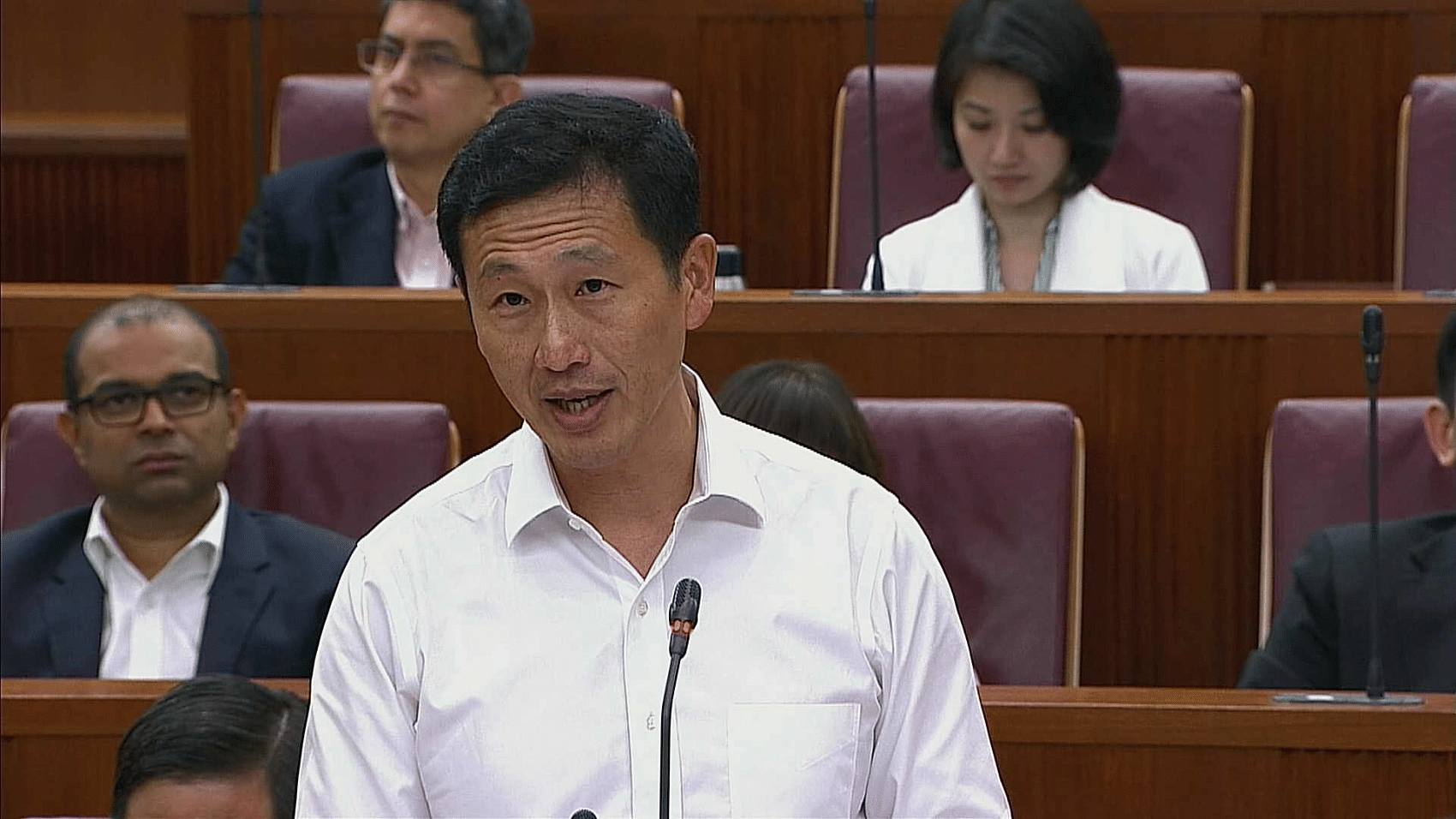Parliament: Fake news law does not stifle academic research; scholars' real concern is about political discourse, says Ong Ye Kung
Sign up now: Get ST's newsletters delivered to your inbox

Education Minister Ong Ye Kung assured the House that the Government will not apply the laws to academic research.
PHOTO: GOV.SG
Rachel Au-Yong, Rachel Au-Yong
Follow topic:
SINGAPORE - The real concern among some academics over the fake news law is the potential impact on political discourse in Singapore, said Education Minister Ong Ye Kung, as he explained why it is impossible for academic research to run afoul of the proposed legislation.
Speaking at the debate on the Protection from Online Falsehoods and Manipulation Bill (POFMA) in Parliament on Wednesday (May 8), Mr Ong assured the House that the government will not apply the laws to academic research.
He was responding to a letter he received last month from 124 academics, which raised concerns that the Bill could lead to self-censorship.
Mr Ong added that according to the authorities, 71 of them are foreign academics based in foreign universities. and 52 are Singaporeans. Among the locals, 25 are based in foreign universities and the remaining academics are based in local universities.
The minister said the Government will stay true to science and empirical evidence. "We have always been, sometimes to a fault." As for opinion-based research, there will be a vigorous public debate.
"Under both scenarios, POFMA does not apply in such a discourse," he said.
The only way the laws would be invoked is if the research uses false observations or data to begin with, which prevents public discourse from taking place properly.
"In which case, such work cannot pass the professional standards of any decent university or research institute," he said.
He pointed to ongoing research around the world in areas like quantum physics and economics that challenge conventional wisdom and added: "If any of our researchers make such a breakthrough in our understanding of the world, rather than being persecuted, they are more likely to be celebrated and may even be accorded a National Day award."
The main concern of academics is not research but concerns that the law will be abused and used to stifle political discourse in Singapore, said Mr Ong, adding that "because not all researchers are just researchers, they may also be activists".
While emphasising that research cannot be conflated with activism, Mr Ong said no activist will be caught by the law if he criticises the Government.
"The law treats all activists equally - whether you are an academic or a man or woman on the street," he said. "It does not target academics. You are as free as an ordinary citizen to comment on current affairs and critique the Government."
Conversely, any academic - activist or not - who uses online platforms to spread falsehoods that harm society will not be spared under the law. "The law offers no special shield to academics either."
He noted that public discourse is becoming more rigorous, and it is in this area where the views of academics would be regarded differently.
"So (an academic) can put out an opinion that Singapore's growth model has failed, meritocracy has failed, that the education system is elitist, that the social welfare system does not work or does more harm to the poor than good. POFMA will not apply to you because that is your opinion," he said.
"But in the interest of open debate and given your stature in society and position in a publicly-funded university, please expect government agencies - if we do not agree with you - to present the facts, our arguments and to convince the public otherwise."
"If that has a chilling effect, please chill," he said to laughter from the House.
He added that the same or even higher expectations apply to him and his fellow Cabinet members, and whenever one of them puts out a view in public, those who disagree with them will speak up.
"We have to consider those views and re-evaluate our position. This interaction will get more active and rigorous. It is part and parcel of modern governance," he said.
"We want this interaction and exchange of ideas to be free of malicious falsehoods which poison the atmosphere and mislead the discourse."
"POFMA enhances, and not diminishes, democratic public discourse," he said, whose speech ended in applause from the House.
On Tuesday, Home Affairs and Law Minister K. Shanmugam also raised the examples of two unnamed academics who had signed the letter - a law lecturer who did not appear to know the current legal position, and another who he said gave several wrong statements in an interview with international non-government organisation Civicus.
One of these was how the academic had conflated the definitions of public interest and falsehoods.
Mr Shanmugam said: "If a Singaporean academic can be mistaken on a such basic points, then it is understandable the foreign academics could have signed without an understanding or appreciation of the true position."
He added that in the last 15 years of the international Times ranking of universities, the National University of Singapore has jumped from the 18th position to the 8th, and the Nanyang Technological University has risen from the 50th to the 12th.
"There is no legal or logical basis for the concerns that this Bill will stifle academic research specifically," he said.

